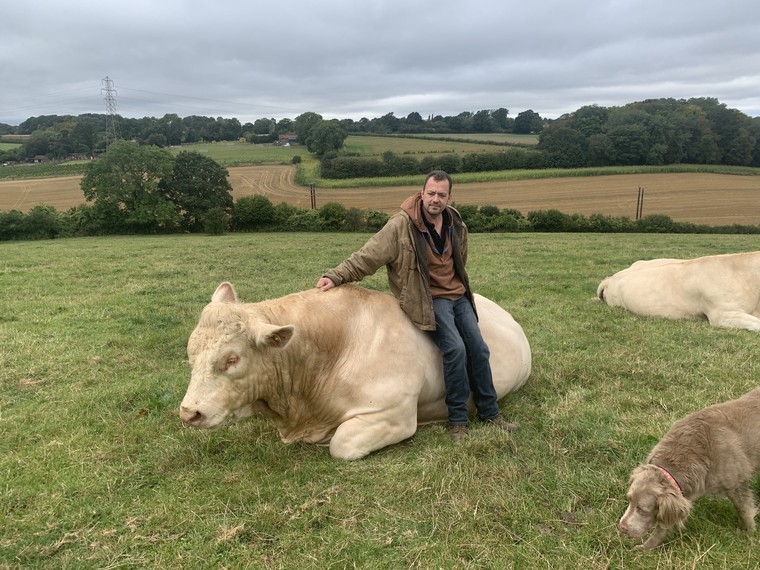The Charolais Society has brought in Julie Holmes to coordinate all the estimated breeding value (EBV) data for society members, with a view to offering the same service to other beef breed societies in the longer term.
There are around 100 Charolais herds in the South East, including the oldest herd in the country, which is kept by Ben Harman, whose grandfather Tony founded the Charolais Society in 1962 and was later made an MBE for services to agriculture.
Like his grandfather, Ben – currently chairman of the society his grandfather founded – is a huge advocate of performance data recording and the “evidence-based decision making” it allows.
“There is no way forward for cattle breeding without becoming more efficient, and the only way to get better at it is to record as much data as possible,” he said. “If we don’t know where we are now, we won’t know whether or not we have improved in future.”
Ben, who trades as AS Harman Ltd, keeps 126 head of Charolais at Grove Farm in Chesham, Buckinghamshire and also buys and sells breeding bulls, making all his decisions based on performance figures, as well as visual assessment and his knowledge of pedigrees.
His grandfather had a similar passion for improving the herd and successfully lobbied the authorities to allow beef farmers to bring in Continental genetics. “Shortly after that the society was born in the kitchen of this farmhouse,” Ben added.
Ben believes that with performance recording working well in every area of agriculture, some beef farmers are missing out by not making the best use of the approach. And why Charolais? “Nothing does weight for age like Charolais do,” he said.
Launching the appeal for breeders to keep their data up to date, the society said the aim was to help develop state-of-the-art records for all animals so that it could continually improve the breed. Julie carried out the same work for the Simmental Cattle Society for more than eight years.
“We’re always encouraging members to performance record all animals,” she said. “Once the data has been analysed by Agricultural Business Research Institute (ABRI) it allows selection by up-to-date traits such as calving ease.”
EBVs measure an animals’ genetic potential and are collated from information on performance data such as birth weights, calving ease, fertility, growth and carcass value.
Society chief executive Peter Phythian welcomed the move to take the recording in-house, explaining: “We are continually looking to make our work more efficient and speedy and we would urge all members to supply us with as much information on their stock as possible so our records can continue to be accurate.”
Julie can be contacted by emailing julie@charolais.co.uk




